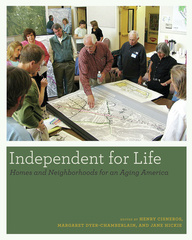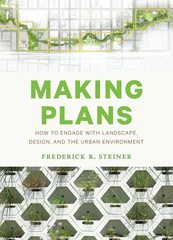How Cities Work
Suburbs, Sprawl, and the Roads Not Taken
Do cities work anymore? How did they get to be such sprawling conglomerations of lookalike subdivisions, megafreeways, and "big box" superstores surrounded by acres of parking lots? And why, most of all, don't they feel like real communities? These are the questions that Alex Marshall tackles in this hard-hitting, highly readable look at what makes cities work.
Marshall argues that urban life has broken down because of our basic ignorance of the real forces that shape cities—transportation systems, industry and business, and political decision making. He explores how these forces have built four very different urban environments—the decentralized sprawl of California's Silicon Valley, the crowded streets of New York City's Jackson Heights neighborhood, the controlled growth of Portland, Oregon, and the stage-set facades of Disney's planned community, Celebration, Florida.
To build better cities, Marshall asserts, we must understand and intelligently direct the forces that shape them. Without prescribing any one solution, he defines the key issues facing all concerned citizens who are trying to control urban sprawl and build real communities. His timely book will be important reading for a wide public and professional audience.
This is an outstanding book that I hope and expect will make a major contribution to the current debate on cities and suburbs.
A past Loeb Fellow at the Harvard University Graduate School of Design, Alex Marshall is a freelance journalist in New York City, who has written about urban design for the Washington Post,George, Metropolis, Planning, and other national publications.
- Introduction: The Sex of Cities
- Chapter 1: A Tale of Two Towns: Kissimmee versus Celebration and the New Urbanism
- Chapter 2: The End of Place
- Chapter 3: The Deconstructed City: The Silicon Valley
- Chapter 4: Trading Places: The City and the Suburb
- Chapter 5: Jackson Heights: An Anachronism Finds Its Way
- Chapter 6: The Master Hand: The Role of Government in Building Cities
- Chapter 7: Portland and Oregon: Taming the Forces That Create the Modern Metropolitan Area
- Chapter 8: No Place Called Home: Community at the Millennium
- Chapter 9: Conclusion. Getting There: Building Healthy Cities
- Acknowledgments
- Notes
- Selected References
- Index









